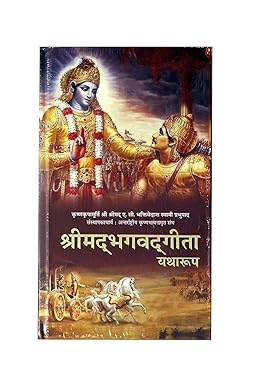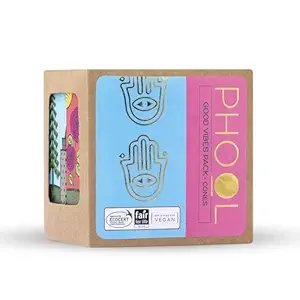મા તું પાવાની પટરાણી ભવાનીમા
કાળકા રે લોલ
મા તારે ડુંગરડે ચડવું તે અતિઘણું
દોહ્યલું રે લોલ.
મા તારા મંડપના દર્શન રે કરવાં
અતિ દોહ્લાલા રે લોલ
મા તારે ગામ ગરબે ગૂંજ ફરતે
પૈદા થયો રે લોલ
મા તારે કાંડે કંડલા જોડ રે
ઝાંઝરી ઝગમગે રે લોલ
મા તારે અંગુઠ વીંછીંયા પાન રે
ઘૂઘરી રણઝમે રે લોલ.
મા તારે દસે આંગળીયે વેઢ રે
પહોંચા પરવળે રે લોલ
હે મા તારે શ્રવણ ઝબૂકે ઢાલ,
કંઠે હાર શોભતા રે લોલ
મા તારી ટીલડી તોઅલ લાખ રે
સેંથે શોભતો રે લોલ
મા તારે નાકે નથેશ્વર ઊંચી કે
શોભા બહુ બની રે લોલ
Overview of "Maa Tu Pawani Patrani"
Title & Meaning
'Maa Tu Pawani Patrani' is a Gujarati Garba song praising Goddess Amba as the supreme queen and divine protector.
Artist & Popularity
Sung by folk and devotional singers, this Garba has become a favorite during Navratri celebrations across Gujarat.
Cultural Value
The song reflects the honor and reverence given to Goddess Amba in Gujarati traditions.
Language & Dialect
Written in Gujarati with devotional expressions and folk style, easy for communities to sing together.
Historical Relevance
Carries forward centuries-old traditions of singing in temples and Navratri Garba gatherings.
Lyrics Structure & Themes
Devotional Imagery
The lyrics describe Goddess Amba as a queen seated with grace, showering blessings.
Repetitive Chorus
Refrains repeat to guide group clapping and synchronized dancing in Garba circles.
Spiritual Symbolism
The queenly imagery symbolizes divine power, protection, and grace.
Community Faith
The lyrics unite people in collective prayer and celebration of Navratri.
Emotional Devotion
Evokes feelings of joy, surrender, and reverence for the Goddess during Garba nights.
Musical & Performance Elements
Traditional Rhythm
Performed with dhol, claps, and other folk instruments to create vibrant beats.
Tempo & Flow
Starts at a steady rhythm, allowing dancers to sync movements in circular Garba formations.
Dance Movements
Lyrics inspire clapping, twirls, and group dancing typical of Garba.
Live vs Studio
Live performances are energetic with extended verses; studio versions are refined for recordings.
Audience Participation
Encourages devotees to clap, sing, and dance together in devotion to Goddess Amba.
Festival & Cultural Significance
Navratri Connection
Widely sung during Navratri as a tribute to Goddess Amba, adding spiritual energy to the celebration.
Spiritual Meaning
Represents surrender to the Goddess, seeking blessings for health, peace, and prosperity.
Folk Heritage
Preserves Gujarati folk music and Garba traditions across generations.
Community Bonding
Brings people together through dance, faith, and cultural pride.
Joyful Atmosphere
Fills Navratri nights with happiness, rhythm, and devotion.
How to Use & Share
Translations & Accessibility
Provide translations to help non-Gujarati devotees connect with the meaning of the song.
Embed Audio & Video
Add YouTube and audio links of the Garba for better engagement on websites.
Printable Lyrics
Offer downloadable lyrics in PDF for personal, devotional, or community use.
Dance & Performance Guides
Provide simple Garba steps, formations, and costume suggestions for learners.
SEO & Social Sharing
Optimize with Garba, Navratri, Gujarati devotional keywords; encourage social media shares.
'Maa Tu Pawani Patrani' is a Gujarati Garba song praising Goddess Amba as the supreme queen and divine protector.
Sung by folk and devotional singers, this Garba has become a favorite during Navratri celebrations across Gujarat.
The song reflects the honor and reverence given to Goddess Amba in Gujarati traditions.
Written in Gujarati with devotional expressions and folk style, easy for communities to sing together.
Carries forward centuries-old traditions of singing in temples and Navratri Garba gatherings.
The lyrics describe Goddess Amba as a queen seated with grace, showering blessings.
Refrains repeat to guide group clapping and synchronized dancing in Garba circles.
The queenly imagery symbolizes divine power, protection, and grace.
The lyrics unite people in collective prayer and celebration of Navratri.
Evokes feelings of joy, surrender, and reverence for the Goddess during Garba nights.
Performed with dhol, claps, and other folk instruments to create vibrant beats.
Starts at a steady rhythm, allowing dancers to sync movements in circular Garba formations.
Lyrics inspire clapping, twirls, and group dancing typical of Garba.
Live performances are energetic with extended verses; studio versions are refined for recordings.
Encourages devotees to clap, sing, and dance together in devotion to Goddess Amba.
Widely sung during Navratri as a tribute to Goddess Amba, adding spiritual energy to the celebration.
Represents surrender to the Goddess, seeking blessings for health, peace, and prosperity.
Preserves Gujarati folk music and Garba traditions across generations.
Brings people together through dance, faith, and cultural pride.
Fills Navratri nights with happiness, rhythm, and devotion.
Provide translations to help non-Gujarati devotees connect with the meaning of the song.
Add YouTube and audio links of the Garba for better engagement on websites.
Offer downloadable lyrics in PDF for personal, devotional, or community use.
Provide simple Garba steps, formations, and costume suggestions for learners.
Optimize with Garba, Navratri, Gujarati devotional keywords; encourage social media shares.


